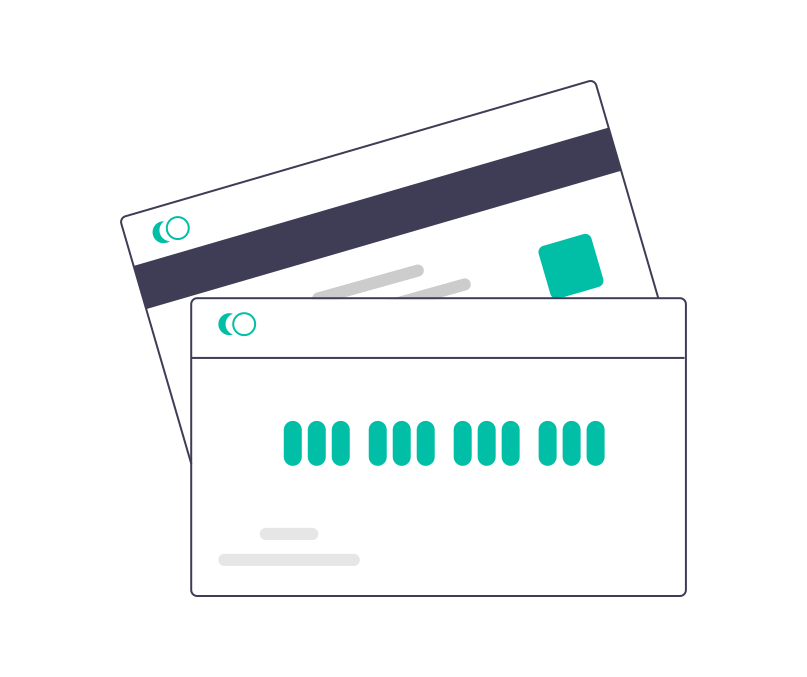Programmers play a vital role in today’s technology-driven world, creating innovative software solutions and powering digital transformations across industries.
However, have you ever wondered how these skilled professionals are compensated for their valuable contributions?
Understanding the various payment methods and structures in the programming industry is crucial to both aspiring programmers and those interested in hiring their services or practicing the art of programming for pay.
In this comprehensive guide, we will explore the topic of programmer compensation, highlighting its significance and shedding light on the different avenues through which programmers earn money.
But first, we must understand how programmers make money.
How does a programmer make money?
Programmers are individuals with specialized skills and knowledge in the field of software development.
They possess the expertise to create, develop, and maintain various types of software applications and systems.
Their work involves writing code, designing algorithms, debugging, and ensuring that the software functions as intended.
Here are some of the roles of programmers and their impact on the world, which is the source of their compensation:
1. Mobile Application Developer

A mobile application developer is responsible for creating applications specifically designed to run on mobile devices such as smartphones and tablets.
They utilize programming languages like Java or Swift to write code that defines the functionalities and user interface of the application.
These developers play a crucial role in crafting user-friendly and efficient apps that cater to the needs of mobile device users.
For instance, imagine a programmer who specializes in developing mobile apps for e-commerce.
They may create a shopping app that allows users to browse products, add items to a cart, make secure payments, and track their orders.
The programmer’s expertise and skills enable them to bring this application to life, ultimately contributing to the success of an online business.
2. Web Developers

Web developers are responsible for designing, building, and maintaining websites.
They use programming languages like HTML, CSS, and JavaScript to create web pages and implement interactive features.
Web developers ensure that websites are visually appealing, responsive, and provide a seamless user experience.
Consider a web developer who is working on an e-learning platform.
They would be responsible for designing the website’s layout, implementing features such as user authentication, creating interactive elements for quizzes or assignments, and optimizing the website’s performance.
The programmer’s knowledge and proficiency in web development contribute to the creation of an engaging and functional online learning platform.
3. Software Engineer

Software engineers are involved in the development of complex software systems that power various industries.
They analyze requirements, design software architectures, write code, and conduct rigorous testing to ensure the software meets quality standards.
Software engineers often work in teams to tackle large-scale projects.
For example, a software engineer could be part of a team developing an enterprise resource planning (ERP) system for a manufacturing company.
They would collaborate with other programmers and engineers to create modules that manage inventory, production scheduling, financials, and other business processes.
The software engineer’s expertise and problem-solving abilities contribute to the development of a robust and efficient ERP system tailored to the specific needs of the organization.
Programmers are skilled professionals who bring software applications and systems to life through their expertise in coding, problem-solving, and software development.
Their work spans various domains, including mobile applications, web development, and complex software systems.
Through their knowledge and dedication, programmers play a pivotal role in shaping the digital landscape and enabling technological advancements in our modern world.
And by playing their part, the world rewards them with monetary value for their work.
Do programmers make good money?
Programmers do make a good amount of money that supports their financial needs.
Programmers possess valuable skills that are in high demand in today’s technology-driven world.
Their ability to develop software, solve complex problems, and contribute to technological advancements often translates into lucrative compensation.
Here are some of the approaches programmers take to earn a good amount of money from their careers:
Working in established tech companies such as Google
Companies across industries rely on programmers to build and maintain software systems, websites, and applications, making their expertise highly sought after.
For example:
Large tech companies like Google, Microsoft, and Facebook are known for offering competitive salaries and benefits to attract top programming talent.
Software engineers working at these companies often enjoy high-paying positions, thanks to the complexity and scale of the projects they work on.
For instance, a software engineer at one of these tech giants can earn a six-figure salary, along with bonuses, stock options, and other perks.
Specializing in certain high ROI niches or fields
Another way programmers make a good amount of money is through specialization.
Programmers who specialize in certain niches or in-demand technologies can command higher salaries due to their specialized knowledge and expertise.
For example, data scientists and machine learning engineers, who possess advanced skills in data analysis and artificial intelligence, are in high demand.
They often earn significant salaries due to the scarcity of professionals with expertise in these areas.
Targeting international clients through freelancing

Not to forget with the advent of online working, programmers have exploited the opportunity to earn a lot of money from it.
Freelancing offers programmers the opportunity to set their rates and work on a project basis.
Skilled freelance programmers who have built a strong reputation and possess sought-after skills can earn substantial incomes.
They may charge premium rates for their services, particularly if they are experts in niche technologies or provide specialized solutions.
Freelancers who establish long-term relationships with clients can also enjoy a steady stream of well-paying projects.
Entrepreneurship and startup founders

Programmers who venture into entrepreneurship and start their own tech companies have the potential to earn significant wealth.
Successful startups that develop innovative software products or provide in-demand services can attract substantial investment, leading to financial success for the founders.
The ability to create software solutions that disrupt industries or address pressing market needs can result in substantial financial rewards.
High-Demand contract work
Programmers who engage in contract work, particularly in sectors with high demand and a a limited supply of skilled professionals, can negotiate attractive compensation packages.
For example, contract programmers specializing in cybersecurity, blockchain development, or mobile app development may earn higher rates due to the scarcity of experts in these fields.
While it is important to note that programming salaries can vary based on factors such as location, experience, industry, and the specific role, programmers, in general, have the potential to make good money due to the demand for their skills and the value they bring to businesses and organizations.
And with that,
How much does a programmer make in a year
The U.S. Bureau of Labor Statistics states most programmers expect to earn a competitive salary that ranges from around $52,000 to $157,000 per year. The range covers programmers with different levels of experience, location, industry, skills, and specific role within the programming field.
Entry-level programmers can typically expect to earn a competitive salary that ranges from around $52,000 to $80,000 per year, depending on the factors mentioned above.
As programmers gain more experience and specialize in specific areas such as software engineering, data science, artificial intelligence, or cybersecurity, their earning potential increases.
Senior-level programmers, software architects, and technical leads often earn salaries that exceed six figures, with annual incomes ranging from $100,000 to $150,000 or more.
How do programmers get paid?
Programming compensation extends beyond a simple paycheck or hourly wage. It encompasses various elements, such as hourly pay, salary, contract work, bonuses, stock options, and freelancing opportunities.
Each method comes with its own benefits, considerations, and implications, which we will explore in depth throughout this article.
Understanding these payment methods is not only important for programmers seeking employment but also for organizations looking to attract and retain top programming talent.
Programmers getting paid by the hour?
Programmers often receive compensation based on an hourly rate, where they charge clients or employers for the number of hours worked.
Hourly pay is a common method of payment for programmers, particularly for freelance work or short-term contracts.
Programmers determine their hourly rate based on factors such as their experience, expertise, the complexity of the project, and market demand.
For example, a freelance web developer might charge $50 per hour for designing and coding a website, while a specialized AI programmer could command $65 or more per hour due to their advanced skills.
How are hourly rates determined?
Hourly rates are determined by considering factors such as experience, expertise, market demand, and specific project requirements.
Researching industry standards and local market rates can provide guidance when setting hourly rates.
What if a project exceeds the estimated hours?
It is common for projects to require more time than initially estimated.
In such cases, programmers should communicate with their clients to discuss additional compensation or negotiate an adjusted timeline based on mutual agreement.
How much do programmers make per hour?
This means that the majority of computer programmers earn around $35 per hour, but it’s important to note that some may earn less or more depending on factors such as experience, specialization, and geographic location.
Are there some advantages to hourly pay?
Yes, hourly pay comes with some advantages that include:
- Fair compensation
- Flexibility in terms of the client to work with or project to work on
- Defined projects come with incentives for efficient work
1. fair compensation
Hourly rates ensure that programmers are compensated for the actual time they spend working.
It allows for transparency in billing and ensures a fair exchange of value between the programmer and the client.
2. Flexibility
Hourly pay provides flexibility for programmers who may work on multiple projects simultaneously.
They can allocate their time according to the project’s needs, accommodating changes and addressing immediate client requirements.
3. Incentive for efficient work
Programmers often strive to complete tasks efficiently within the given hours to maximize their earnings.
This can result in increased productivity and prompt project delivery.
However, I have realized that some programmers do not like getting paid by hours spent on a project. Why?
Why hourly rate may not be cool with you?
a) Uncertain Income:
Hourly pay can be unpredictable, especially for freelancers or programmers without a consistent workload.
Work availability and project durations can fluctuate, leading to inconsistent income.
b) Time Tracking and Administration:
Keeping accurate records of hours worked and managing invoices can be time-consuming administrative tasks for programmers, taking away time that could be spent on actual coding and development.
c) Limited Earning Potential:
Hourly rates may impose an earnings ceiling unless programmers increase their rates or transition to different payment structures such as project-based or retainer agreements.
Next, let’s look at the other methods of pay received by computer programmers.
Programmers can also receive a salary
Programmers have the option to receive a fixed salary for their work.
A fixed salary refers to a predetermined amount of money that programmers receive on a regular basis, typically monthly or biweekly, regardless of the number of hours worked.
This form of compensation provides stability and predictability, allowing programmers to plan their finances more effectively.
One advantage that a salary offer is the financial stability.
A fixed salary offers a stable income stream, providing programmers with a sense of financial security.
They can rely on a consistent paycheck, which makes budgeting and planning for the future easier.

Salaried programmers often receive additional benefits and perks from their employers.
These may include health insurance, retirement plans, paid time off, and professional development opportunities.
These benefits enhance the overall compensation package and contribute to a more comprehensive employment experience.
Salaried positions sometimes come with opportunities for career advancement within an organization.
Programmers can take on higher-level roles, such as team leads, project managers, or technical architects, which may come with increased responsibilities and higher salaries.
Are there some potential drawbacks to paychecks?
Unlike hourly pay or freelance work, salaried positions often involve working fixed hours and adhering to a set schedule.
This lack of flexibility may be a drawback for programmers who prefer more control over their work hours.
In some cases, salaried programmers may face pressure to work longer hours or handle additional responsibilities without receiving overtime pay.
This can result in work-life balance challenges and potential burnout if not managed effectively.
To counter this, programmers can negotiate their pay to reflect the amount of effort they put in.
Many programmers wonder how to negotiate a higher salary when starting a new job or during performance reviews.
Negotiation tips and strategies can empower programmers to advocate for fair compensation based on their skills, experience, and the market value of their work.
How can I negotiate a higher salary as a programmer?
Negotiating a higher salary as a programmer requires careful preparation, effective communication, and a clear understanding of your value and the job market.
Here are actionable steps to help you navigate the salary negotiation process:
Step 1: Research Salary Data
Before entering into salary negotiations, gather information about the average salaries for programmers in your specific location, industry, and experience level.
Online resources, industry reports, and salary surveys can provide valuable insights.
This data will serve as a benchmark to support your negotiation arguments.
Step 2: Assess Your Value
Evaluate your skills, experience, and achievements that make you valuable as a programmer.
Identify your unique selling points and the contributions you can bring to the role or organization.
Consider factors such as your specialized knowledge, certifications, project experience, and any unique skills that set you apart from other candidates.
Step 3: Define Your Desired Salary Range
Determine the salary range you believe aligns with your value and the market rates.
Set a realistic minimum and maximum figure based on your research.
This range will serve as a starting point for negotiation and give you flexibility during the process.
Step 4: Prepare Your Case
Compile a list of specific examples that highlight your accomplishments, such as successful projects, cost savings, or improvements you’ve made in previous roles.
Quantify your impact whenever possible, using metrics or percentages to demonstrate the value you can bring to the prospective employer.
Step 5: Practice Effective Communication
During the negotiation conversation, clearly articulate your skills, experience, and the value you can contribute to the organization.
Emphasize how your expertise can help solve their business challenges or contribute to their goals.
Practice confidence and assertiveness while remaining professional and respectful.
Step 6: Be Open to Non-Salary Benefits
Consider negotiating not only for a higher base salary but also for other benefits that can enhance your overall compensation package.
These may include additional vacation time, flexible work hours, professional development opportunities, stock options, or performance-based bonuses.
Assess which benefits are important to you and be prepared to discuss them during the negotiation.
Step 7: Remember, Timing is Key
Choose an appropriate time to discuss salary negotiation.
Generally, it is best to initiate the conversation after receiving a job offer or during performance reviews when you can showcase your value and contributions.
Avoid discussing salary too early in the interview process, as it may overshadow your qualifications and fit for the role.
Step 8: Practice Active Listening
Engage in a constructive dialogue with the employer or hiring manager. Listen carefully to their perspectives and concerns.
If they present a counteroffer or express limitations, consider alternative solutions or compromises that can still meet your salary expectations while addressing their concerns.
Step 9: Consider Multiple Offers
If you receive multiple job offers, you may have more leverage in negotiating a higher salary.
Use this opportunity to compare offers and consider factors beyond salary, such as benefits, growth opportunities, company culture, and work-life balance.
What is the difference between hourly pay and salary for programmers?
The difference between hourly pay and salary for programmers lies in how they are compensated for their work.
Here are the key distinctions between the two:
Hourly Pay:
Hourly pay is a method of compensation where programmers are paid based on the number of hours they work.

In this arrangement, programmers track and report their work hours, and they are typically paid at an agreed-upon hourly rate.
The main features of hourly pay include:
- Flexibility: Hourly pay allows for more flexibility in terms of work hours. Programmers may have the freedom to determine their own schedule or work on a project-by-project basis.
- Overtime Pay: If programmers work beyond a certain number of hours in a week (typically 40 hours), they may be entitled to overtime pay, which is usually at a higher rate than the regular hourly pay.
- Variability in Income: Since hourly pay is directly tied to the number of hours worked, income can fluctuate from one period to another. Programmers may experience variations in their paychecks based on the amount of work they put in.
Salary:
A salary is a fixed amount of money that programmers receive on a regular basis, regardless of the number of hours worked.
It is typically paid on a monthly or biweekly basis.
The main features of salary include:
- Stability and Predictability: Salary provides stability and predictability in terms of income. Programmers receive a consistent amount regardless of the number of hours worked or the workload involved.
- Employment Contracts: Salaried positions often come with employment contracts or agreements that outline the terms of employment, including salary, benefits, and other terms and conditions.
- Benefits and Perks: Salaried positions often include additional benefits such as health insurance, retirement plans, paid time off, and other perks, which contribute to the overall compensation package.
- Potential for Career Growth: Salaried positions may offer opportunities for career growth within an organization, such as promotions to higher-level roles with increased responsibilities and higher salaries.
Contract work is another source of income for programmers

Contract work is a popular and lucrative source of income for programmers.
Contract work involves providing programming services to clients or organizations on a project-by-project basis.
Instead of being employed full-time, programmers operate as independent contractors or freelancers.
They take on specific assignments, negotiate terms, and complete the work within agreed-upon timelines.
For example, a programmer with expertise in mobile app development may secure a contract to build a custom app for a small business.
The contract may outline the scope of work, project deliverables, payment terms, and deadlines.
What are the advantages of contract work for programmers?
Flexibility: Contractors have more control over their schedules and can choose projects that align with their interests and availability. They can also work remotely, allowing for a better work-life balance.
Higher Earning Potential: Contractors often have the opportunity to negotiate higher rates compared to salaried positions. As their skills and reputation grow, they can command premium rates for their specialized services.
Diverse Experience: Contract work exposes programmers to a variety of projects and industries, broadening their skill set and knowledge base. This diversity of experience can enhance their marketability and professional growth.
What are the disadvantages of contract work for programmers?
While contract work offers numerous benefits, there are some challenges to consider:
Client Acquisition: Finding clients can be a significant challenge for contractors, especially when starting. Building a strong network, leveraging online platforms, and marketing one’s skills are crucial for securing contracts.
Income Stability: Contract work may not provide a consistent income stream compared to a regular salary. Contractors must budget and plan for potential gaps between projects.
Self-Employment Responsibilities: Contractors are responsible for managing their own taxes, healthcare, and retirement plans. They must also handle administrative tasks, such as invoicing, contract negotiations, and project management.
How to find clients for contract work?
There are various avenues for finding clients, including networking events, online freelance platforms, job boards, and referrals from colleagues or past clients.
Building a strong online presence and showcasing a portfolio of past work can also attract potential clients.
What legal considerations should I keep in mind as a contractor?
As a contractor, it’s important to have clear and legally binding contracts in place to protect your rights and define the scope of work, payment terms, and project deliverables.
Consulting with a lawyer or utilizing contract templates can help ensure compliance with relevant laws and regulations.
Additional Forms of Programmer Compensation

In addition to base salaries, there are several other forms of compensation that programmers may receive, providing additional financial benefits and incentives for their work.
Bonuses and Incentives
Bonuses and incentives are common ways to recognize and reward programmers for their exceptional performance, meeting specific goals, or contributing to the success of a project or company.
These additional payments can provide motivation, job satisfaction, and financial benefits.
Some types of bonuses and incentives include:
- Performance Bonuses: Programmers may receive bonuses based on their individual performance, such as meeting project deadlines, exceeding targets, or demonstrating exceptional skills. These bonuses can be in the form of cash rewards, additional compensation, or profit-sharing.
- Project-Based Bonuses: When programmers work on specific projects, they may be eligible for bonuses tied to the project’s success. For example, if a software product achieves a certain number of sales or receives positive user feedback, programmers involved in its development may receive a bonus.
- Annual or Year-End Bonuses: Many companies offer annual bonuses to their employees, including programmers, as a way to acknowledge their contributions throughout the year. These bonuses can be based on overall company performance, individual achievements, or a combination of factors.
Are bonuses guaranteed?
Bonuses are typically discretionary and can vary based on individual and company performance. While some bonuses may be guaranteed as part of employment contracts, others are subject to company policies and financial circumstances.
Stock options and equity
Stock options and equity are forms of compensation that involve granting programmers the right to purchase company shares or receive ownership stakes.
This is often offered by startups, tech companies, or firms planning to go public.
Here’s an overview of stock options and equity for programmers:
- Stock Options: Stock options provide programmers with the opportunity to purchase company shares at a predetermined price, known as the exercise price, within a specified timeframe. If the company’s stock value increases, programmers can buy the shares at a lower price and potentially profit from their subsequent sale.
- Equity: Equity refers to ownership in a company. Programmers may receive equity as part of their compensation package, granting them a percentage of ownership. As the company grows or undergoes a successful exit, such as an initial public offering (IPO) or acquisition, the value of the equity can increase, allowing programmers to benefit financially.
What are the benefits of stock options for programmers?
- Potential for financial gain if the company’s stock value increases.
- Alignment of interests between programmers and the company’s success.
- Possibility to participate in company growth and profit-sharing.
What are the risks of stock options for programmers?
- Stock options may be subject to vesting periods, requiring programmers to stay with the company for a certain duration before exercising their options.
- Stock values can fluctuate, and there is a risk of the options becoming worthless if the company doesn’t perform well or fails.
Freelancing and independent contracting

Freelancing and independent contracting offer programmers the freedom and flexibility to work on a project basis or provide their services to multiple clients.
Some advantages of freelancing and independent contracting include:
- Higher Earning Potential: Freelancers can set their rates based on their skills, expertise, and the market demand for their services. This allows them to potentially earn more than a traditional salaried position.
- Diverse Project Exposure: Working with multiple clients and projects exposes freelancers to various technologies, industries, and challenges, enhancing their skills and knowledge.
- Flexibility and Autonomy: Freelancers have the freedom to choose their projects, set their schedules, and work remotely. This flexibility can improve work-life balance and cater to individual preferences.
How do I find clients for freelance programming work?
Platforms like freelancing websites, online communities, networking events, and personal referrals can be valuable sources for finding clients.
Building a strong online presence and showcasing your skills through a portfolio or website can also attract potential clients.
How can I start freelancing or working as an independent contractor as a programmer?
To start freelancing, identify your target market, define your services, set competitive rates, and establish a professional online presence.
It’s also essential to consider legal and financial aspects, such as contracts, invoicing, and taxes. This may depend on the state or country that you are in.
What legal considerations should I be aware of when working as a freelance programmer?
As a freelancer, you should familiarize yourself with local regulations, tax obligations, and any necessary permits or licenses.
Consult with a legal or tax professional to ensure compliance with relevant laws and regulations.
In summary, additional forms of programmer compensation include bonuses and incentives, stock options and equity, as well as the option to freelance or work as an independent contractor.
These forms of compensation can supplement base salaries, motivate programmers, and provide opportunities for financial growth.
It’s important for programmers to consider their career goals, preferences, and the specific compensation packages offered by employers or available in the freelance market when making decisions about their professional paths.
How much can you get paid as a programmer?
It depends on:
Experience and skill level
Experience and skill level play a significant role in determining a programmer’s earning potential.
As with many professions, the more experience and expertise a programmer has, the higher their salary is likely to be.
Entry-level programmers typically earn lower salaries compared to those with several years of experience.
Continuing to enhance your skills through continuous learning and professional development is crucial for career progression and increasing your earning potential.
By staying updated with the latest programming languages, frameworks, and tools, you can position yourself for higher-paying opportunities.
Geographic location

Geographic location is another factor that influences programmer compensation.
Salaries can vary significantly based on the cost of living in a particular area.
For instance, programmers working in tech hubs like Silicon Valley or New York City may earn higher salaries to compensate for the higher living expenses in those areas.
On the other hand, programmers working in regions with a lower cost of living may have lower salary ranges.
It’s important to consider the balance between salary and living expenses when evaluating compensation offers or contemplating relocation.
Industry and specialization
The industry and specialization a programmer chooses can have a significant impact on their earning potential.
Certain industries, such as finance, healthcare, and technology, often offer higher salaries due to the complexity and critical nature of the software systems they require.
Additionally, specialized programming skills and knowledge in high-demand areas can command higher pay.
For example, expertise in programming languages like Python, Java, or JavaScript, as well as skills in data science, artificial intelligence, or cybersecurity, can lead to increased earning potential.
It’s essential to keep up with industry trends and stay informed about the programming specializations that are currently in demand.
This knowledge can guide your career choices and help you pursue opportunities that align with your interests and financial goals.
In conclusion, a programmer’s salary is influenced by factors such as experience, skill level, geographic location, industry, and specialization.
By continuously enhancing your skills, staying updated with industry trends, and considering the potential impact of geographic location, you can position yourself for better earning opportunities in the programming field.
How do software engineers receive payments from clients
When it comes to receiving payments, software engineers have various methods available to them.
They are:
1. Direct Bank Transfer

Direct bank transfers or wire transfers are popular payment methods for software engineers, especially in the United States.
This method involves the client transferring funds directly from their bank account to the engineer’s bank account.
Bank transfers offer a secure and straightforward way to receive payments, especially for larger projects or ongoing work.
For example, if a software engineer develops a customized software solution for a client, they can provide their bank account details to the client, who can then initiate a transfer of the agreed-upon amount.
Once the transfer is complete, the engineer receives the payment directly in their bank account.
2. Online Payment Platforms
Software engineers often rely on online payment platforms to receive payments from clients, providing a convenient and efficient way to facilitate transactions.
Platforms such as PayPal, Stripe, or Wise enable secure online transfers between clients and software engineers.

Let’s say a freelance software engineer completes a web development project for a client.
The client can make the payment through an online payment platform by linking their bank account or credit card.
The engineer receives the payment in their online payment account, which can then be transferred to their bank account or used for future transactions.
3. Payment Gateways

Payment gateways are integrated systems that allow software engineers to accept payments directly on their websites or applications.
These gateways securely process transactions and handle the transfer of funds between clients and software engineers.
For instance, if a software engineer develops a mobile application that offers in-app purchases, they can integrate a payment gateway like Apple Pay or Google Pay.
This enables users to make payments within the app, with the funds being deposited into the engineer’s designated account.
4. Checks and Money Orders
Although less common in today’s digital age, some clients may still opt to pay software engineers using traditional methods like checks or money orders.
The client prepares a physical check or money order for the agreed-upon amount, which can be mailed or handed over in person to the software engineer.
How much can a beginner programmer get paid?
A beginner programmer can typically expect to earn an average annual salary ranging from $50,000 to $75,000, depending on factors like location, industry, and skills. However, continuous learning, gaining experience, and specializing in high-demand areas can lead to higher earning potential in the long term.
Can I receive benefits such as healthcare and retirement plans as a freelance programmer?
As a freelance programmer, you generally won’t receive benefits like healthcare or retirement plans from an employer. However, you can explore options such as private health insurance, individual retirement accounts (IRAs), or joining professional organizations that offer benefits to freelancers. Plan and budget for these benefits to ensure financial security and well-being.
Are there specific industries or specializations that offer higher compensation for programmers?
Certain industries and specializations in programming offer higher compensation. Industries like finance, healthcare, and tech tend to pay well. Specializations such as data science, machine learning, and cybersecurity are in high demand, commanding higher salaries. Consider these for potentially higher programmer compensation.
How much do programmers make per month?
Programmers’ monthly earnings vary based on factors like experience, location, and industry. On average, entry-level programmers earn around $3,000 to $4,500 per month, while experienced programmers can make $5,000 to $6, 500 or more. Specializations and expertise can lead to higher salaries.
Conclusion
In conclusion, understanding how programmers get paid is essential for both aspiring software engineers and clients seeking their services.
Whether it’s through direct bank transfers, online payment platforms, payment gateways, or traditional methods like checks, programmers have various options available to receive payments from clients.
By establishing transparent and efficient payment processes, programmers and clients can foster successful collaborations while ensuring fair compensation for the valuable skills and expertise programmers bring to the table.
Create, inspire, repeat!







